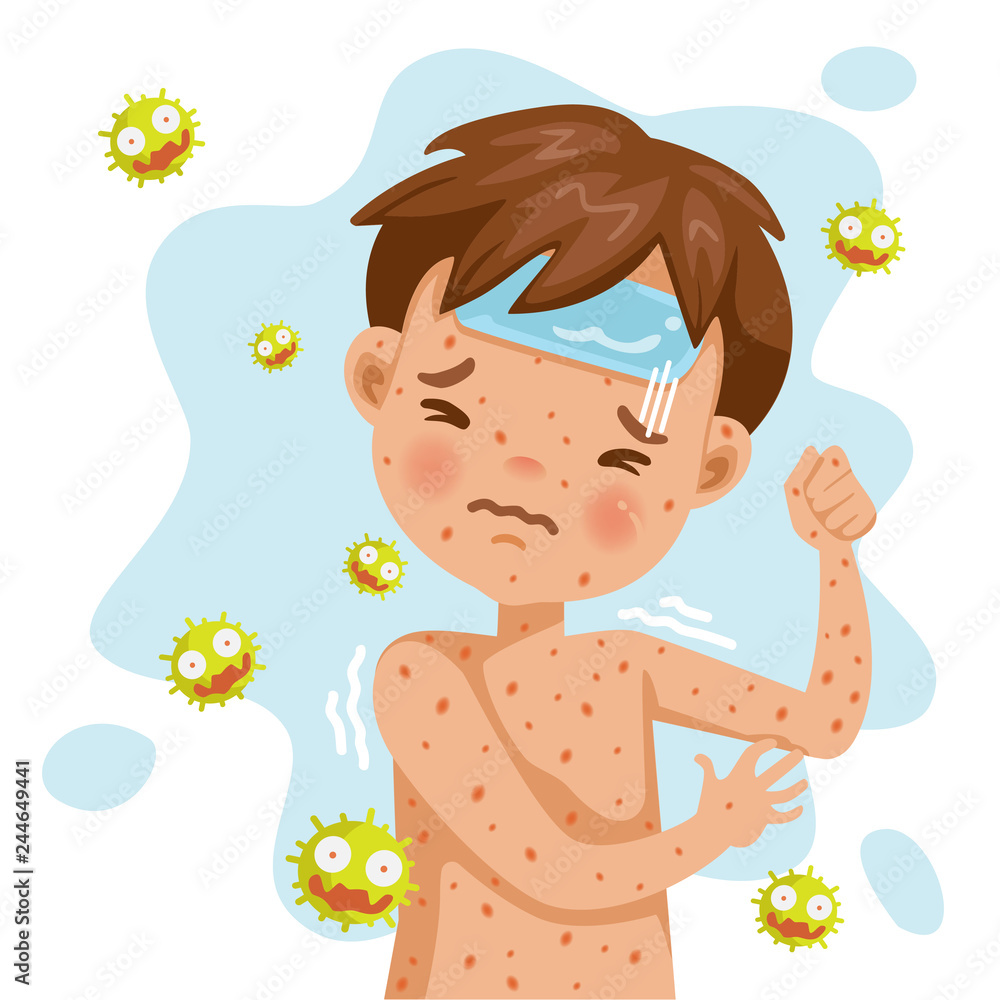Measles: Why This Disease Persists In Our Communities

Table of Contents
Vaccine Hesitancy and Misinformation
Vaccine hesitancy plays a significant role in fueling measles outbreaks. The spread of misinformation, often amplified by social media, has eroded public trust in vaccines, leading to decreased vaccination rates and increased susceptibility to measles.
Common misconceptions and myths about the measles, mumps, and rubella (MMR) vaccine include:
- Myth 1: The MMR vaccine causes autism. This debunked claim, originating from a fraudulent 1998 study, continues to circulate, causing significant harm. Numerous large-scale studies have definitively proven no link between the MMR vaccine and autism.
- Myth 2: Measles is a mild childhood illness. Measles can lead to serious complications such as pneumonia, encephalitis (brain swelling), and even death, particularly in young children and those with weakened immune systems.
- Myth 3: Vaccines overload the immune system. The human immune system is capable of handling multiple vaccines simultaneously. The small amount of antigens in vaccines is far less than the body encounters daily through natural exposure to germs.
The impact of social media and misinformation campaigns on vaccination rates is undeniable. Misleading information spreads rapidly online, often without fact-checking or scientific scrutiny. This underscores the importance of relying on credible health information sources, such as the World Health Organization (WHO), the Centers for Disease Control and Prevention (CDC), and other reputable public health organizations. Combating measles vaccine hesitancy requires targeted public health campaigns that address these myths directly and promote accurate information. Understanding the driving forces behind the anti-vaccine movement is crucial in developing effective counter-narratives.
Global Travel and Disease Spread
International travel significantly facilitates the rapid spread of measles. Unvaccinated individuals traveling to and from areas with high measles rates can easily introduce the virus into new communities, leading to outbreaks even in regions with high vaccination coverage. The interconnectedness of our globalized world makes containing outbreaks challenging.
Examples of measles outbreaks linked to international travel illustrate this point:
- Outbreaks in several European countries in recent years have been traced back to travelers returning from regions with low vaccination rates.
- Measles cases imported into countries with high vaccination coverage have resulted in localized outbreaks among unvaccinated individuals.
Effective measles outbreak prevention strategies must account for the realities of global connectivity. Enhanced surveillance systems, rapid response mechanisms, and international collaboration are crucial in preventing the spread of measles across borders. Improving global health security requires a coordinated international effort to address the challenges posed by international travel and measles.
Gaps in Vaccination Coverage and Access
Disparities in vaccine access and coverage contribute significantly to measles outbreaks, particularly in low-income countries. Challenges in reaching remote or marginalized communities with vaccination campaigns often leave vulnerable populations unprotected. Limited healthcare infrastructure and inadequate resources further exacerbate the problem.
Regions with low vaccination rates and subsequent outbreaks demonstrate this clearly:
- Many sub-Saharan African countries experience persistent measles outbreaks due to limited access to vaccines and healthcare services.
- Conflict zones and areas affected by natural disasters often have severely disrupted vaccination programs, leading to increased vulnerability to measles.
Addressing measles vaccination coverage requires a multi-pronged approach. Improved vaccine equity, investment in healthcare infrastructure, and community-based outreach programs are essential to reaching all populations. Strengthening global vaccination initiatives is crucial for ensuring that everyone has access to life-saving vaccines. Overcoming health disparities is fundamental to achieving measles eradication.
The Importance of Herd Immunity
Herd immunity, achieved through high vaccination rates, protects even those who cannot be vaccinated (e.g., infants, immunocompromised individuals). For measles, a high vaccination coverage of around 95% is needed to achieve herd immunity. Low vaccination rates undermine herd immunity, leaving vulnerable populations at risk. The consequences of insufficient vaccination on herd immunity measles are severe, increasing the likelihood of widespread outbreaks.
Conclusion: Combating the Persistence of Measles
The continued presence of measles in communities is a result of interconnected factors: vaccine hesitancy fueled by misinformation, the ease of global disease spread through international travel, and unequal access to vaccination, especially in low-income countries. Vaccination remains the most effective strategy for preventing measles outbreaks.
Protecting our communities from measles requires a concerted effort. Get vaccinated, stay informed about the MMR vaccine from reputable sources like the CDC and WHO, and advocate for increased vaccine access and public health initiatives to combat measles. Let's work together to eliminate this preventable disease and achieve measles eradication. Let's make measles prevention a priority and strengthen our collective commitment to public health initiatives and strategies to protect against measles.

Featured Posts
-
 Greve Sncf Philippe Tabarot Juge Les Revendications Illegitimes
May 30, 2025
Greve Sncf Philippe Tabarot Juge Les Revendications Illegitimes
May 30, 2025 -
 Reforme Des Retraites Laurent Jaccobelli Evoque Une Possible Alliance Rn Gauche
May 30, 2025
Reforme Des Retraites Laurent Jaccobelli Evoque Une Possible Alliance Rn Gauche
May 30, 2025 -
 Finding Gorillaz Full Album Show Tickets London Concert Guide
May 30, 2025
Finding Gorillaz Full Album Show Tickets London Concert Guide
May 30, 2025 -
 Le Destin Tumultueux De La Deutsche Bank Chronique D Une Institution Financiere
May 30, 2025
Le Destin Tumultueux De La Deutsche Bank Chronique D Une Institution Financiere
May 30, 2025 -
 Get R45 000 Off Your New Kawasaki Ninja Motorcycle
May 30, 2025
Get R45 000 Off Your New Kawasaki Ninja Motorcycle
May 30, 2025
